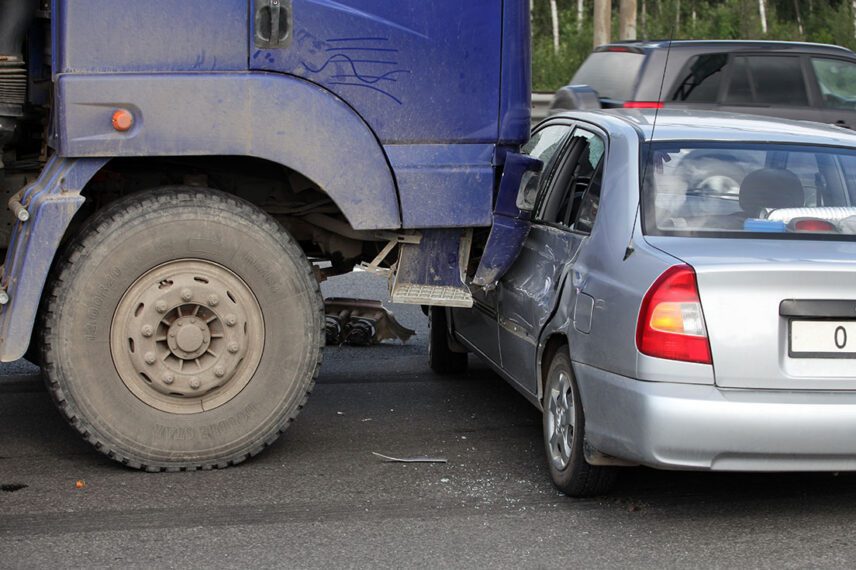Are Dashcams Useful Evidence in Truck Accident Cases?

With any personal injury case, such as a car or trucking accident, you need evidence to back up your claim. This might be even more true in the case of trucking accidents because you must prove negligence on the part of the truck driver in order to win your claim. To prove negligence, the driver’s actions must be clearly documented as “different from what an average truck driver would do under the same circumstances.”
In a perfect world, an at-fault truck driver would freely admit their wrongdoing, and their employer would see that you are fairly compensated. Unfortunately, this is rarely the case, and trucking companies will often try to keep as much evidence away from you as possible. Without an admission of guilt, you are then left to prove blame through other sources of evidence. While collecting the necessary evidence can be difficult, especially if you are recovering from severe injuries, it’s not impossible. Here is some important information to help with your personal injury case:
What Are the Sources of Evidence in a Trucking Accident Case?
One source is the black box data of a truck’s recorder. Through the data and metrics that track the truck driver’s recorder provides, you can establish critical evidence of the events of the accident. The downside to this source is that the trucking company owns black box data, and the only way to access it is through a discovery process, which doesn’t take place until after a lawsuit is filed.
Luckily, there are other methods of tracking down evidence for your claim. If there were any witnesses to the accident, their third-party testimony could be valuable proof of fault in your claim. Of course, witnesses aren’t always around in an accident and tracking them down after can be difficult in any circumstance.
So if both of these sources aren’t foolproof, what other option do you have for evidence?
How Dashcam Footage Can Prove Liability in a Truck Accident
You can provide convincing evidence of who was at fault in an accident with dashcam footage. You must follow the laws of South Carolina that establish where and how to use a dashcam to record events, but as long as you do, you might have all the proof you need to win your claim.
Two types of dashcams can record footage of the accident, including:
- An individual driver’s own dashcam bought to protect themselves from any legal issues when they are driving
- A commercial truck’s dashcam usually used to monitor the truck driver for their safety
Footage from either of these types of dashcams is allowed to be used as evidence in your claim. If the footage is from your own dashcam, you can quickly establish guilt without having to request the evidence through long court processes. If not, it is up to your lawyer to request the footage during the discovery process. If you are relying on the truck’s dashcam, you need to act quickly to keep the trucking company from destroying the evidence since it is not a legal requirement to have a dashcam.
Of course, you should keep in mind that any dashcam footage you have should clearly show that the accident was the truck driver’s fault. If it doesn’t, you won’t want to use that footage for your claim, or else the trucking company will use it to reduce the compensation you can recover. If there were any witnesses to the accident, you might discover they had a dashcam that recorded the events, which is also usable for your case.
What a Dashcam Can Prove in Your Trucking Accident Case
If you have footage from a dashcam, it can show:
- The truck driver changed lanes without properly checking their blind spot.
- The truck driver was on their mobile device and was driving distracted at the time of the accident.
- The truck driver was speeding or driving recklessly.
Once there is recorded evidence of the events of an accident, it is challenging to contradict such proof. For example, if the truck driver stated that none of his actions were negligent, but then his dashcam footage shows him nodding off behind the wheel right before the accident, they won’t be able to contradict such clear proof. In a truck, there are typically two types of dashcams—those that record the road and the area around the truck and those that face the driver and record footage of their actions.
Final Thoughts
Truck accidents often lead to serious or fatal injuries, so it is vital that your settlement properly compensates for all your needs and expenses. Because you are dealing with a trucking company and its insurance carrier, it can be difficult to maneuver your case properly. While you can go it alone, getting an experienced truck accident lawyer will ensure that all evidence is collected on your behalf to give you the best chance possible at the settlement you deserve.






